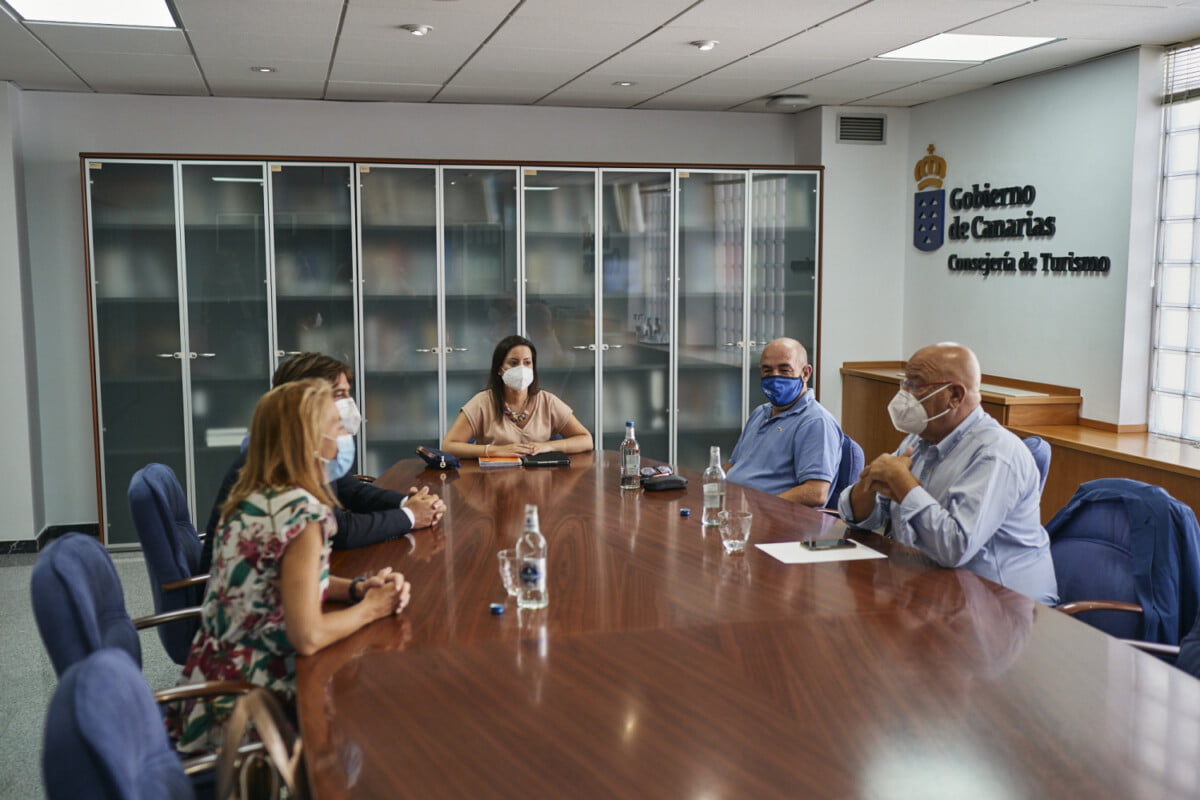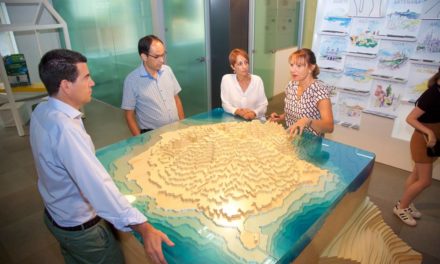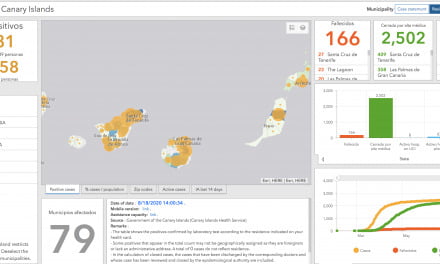The Canary Islands Government Minister of Tourism, Industry and Commerce, Yaiza Castilla, held a meeting last week with the presidents of the main hotel associations on the islands to coordinate the protocol to establish tests for tourists, to detect and diagnose Covid-19, both at origin and in destination, aiming to generate confidence in the Canary Islands as a destination for the winter season.
The meeting was attended by leaders of the main hotelier and tourism business associations in the region, including the president of the Hotel and Extra-Hotel Association of Tenerife, La Palma, La Gomera and El Hierro (Ashotel), Jorge Marichal; the president of the Federation of Hospitality and Tourism Entrepreneurs of Las Palmas (FEHT), José María Mañaricúa; the president of the Lanzarote FTL and Asolán Tourist Federation, Susana Pérez; and the president of the Fuerteventura Tourism Business Association (Asofuer), Antonio Vicente Hormiga.
The Ministry for Tourism is working in coordination with the Health Department on proposed protocols, on logistics for the implementation of safe corridors, in parallel to negotiations already initiated by Spain’s Ministry of Foreign Affairs with governments of our main tourism issuing markets, while contemplating the option of conducting tests at source, either with government agreements or in the private sphere through the operators.
The new protocol also contemplates carrying out these tests at destination, at the points of departure of tourists, in coordination with governing island cabildos, with accommodation operators and the regional government, in order to try to achieve “mutual risk”.
The counsellor assessed indicators from recent days with satisfaction that the Canary Islands may once again aspire to a certain degree of tourist recovery for the winter season, with hope for a relaxation of travel restrictions to the islands from the UK, who have agreed to now add or remove the regions themselves from its list of Covid-19 safe corridors and not simply by country as they did before. The proposal detailed how the European Commission might coordinate and harmonise such measures when dealing with third countries to the EU based on similar criteria, as well as statements made by the president of the Commission, Ursula von der Leyen, who favours the establishment of tests for travellers rather than quarantines. All these measures seek to give confidence to the market and offer stability to companies in the travel sector. The Canary Islands are in a good position for tourism, given that it is the only sunny destination with capacity for the coming winter season.
In any case, the employers’ associations and the Regional Tourism Council are aware that any measure in favour of Canarian tourist activity involves lowering the current levels of detected infections in Canary Islands, which they insist must mean a tightening the measures in areas where levels infections are higher, so that the opening of the winter season can be reached on time. The winter season on the islands is from November to March.
According to Yaiza Castilla, “we have lost our main international source markets, which complicates the planning of the winter season and compromises the viability of the tourism business, a situation that worries not only the Canarian tourism sector, but also the issuing sector it is being seriously harmed by the veto to the Canary Islands, since it is the only winter destination of great volume in the middle distance of the main source markets that, in addition, has all the European standards, highly appreciated at this time of pandemic ”.














My wife and I have visited Corralejo for an extended (6-8 weeks) ‘holiday’ for many years. This year we have reserved flights and have made our apartment reservation for 8 weeks. During our trip we would spend around € 6,000.0 or more. For me it is bad enough to have to wear a face mask which, according to many authorities on the internet, is completely ineffective ( in stopping pathogens) BUT very dangerous to the wearer. – I have yet to wear one in the U.K. But I am concerned about the necessity to undergo a test procedure which yields 93% of false positives at a cost of around 120 pounds each before we make our journey (apart from the fact that a false positive will stops us leaving the U.K. in the first place !) We most certainly will cancel our trip and will not be contributing €6,000.00 to the Corralejo economy !
Do cancel your trip if you do not wish to follow official advice. We have some of the lowest infection rates in Europe, the lowest in all Spain and have successfully controlled 2 waves of infection so far. We believe masks work. We do not recognise any authority on the internet. Your 93% false positive claim is not correct, or perhaps incorrectly stated. PCR tests (those more expensive ones) are required for anyone coming from a high risk area. Once your country has brought infections under control (below 150/100k population) you will not require a PCR test to enter Spain. That is proportionate and correct. You will still need a rapid antigen test to stay in tourist accommodation here on the islands, at a cost of around 25€ per person. The antigen test is more than adequate to help us control any potential danger from imported infections, to the best of our knowledge. The rule is simply if you are in a high risk area, please don’t come here without a test. We are very pleased to welcome you once you have had a test, or postpone your holiday until the global pandemic has been more successfully dealt with.